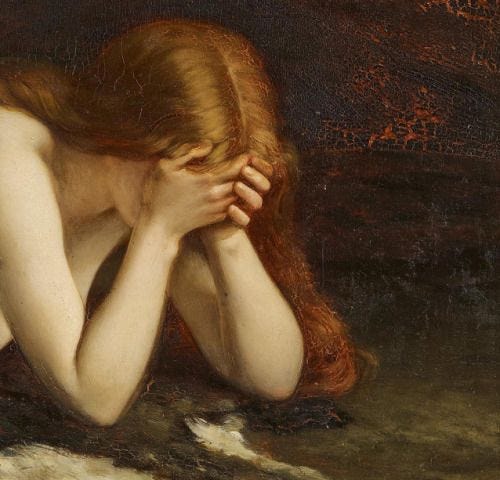“Well, now
If little by little you stop loving me
I shall stop loving you
Little by little
If suddenly you forget me
Do not look for me
For I shall already have forgotten you”
Pablo Neruda
There are few among us in this generation or the previous one who have not experienced heartbreak. It seems to be framed in modern media as a rite of passage to growing up. But when we ask our grandmothers and great grandmothers, they often never experienced such a thing except when they were widowed. What’s going on?
Who can forget the feeling of getting your heart broken in romance? There are thousands of angsty songs and cringey poems written to express the pure anguish that one feels at the betrayal, the shattering of the fantasy, the crushing reality of heartbreak. In my experience, though I won’t divulge too much, it felt like all my insides had been emptied out. The ground under my feet had been removed and I lived in a kind of living purgatory where every moment was just about finding a way to pass the time until I wouldn’t have to pass time anymore. Every question or image about the future was suddenly bleak and empty. Food tasted like nothing. The very colour had gone out of the world and I had lost so much weight my friends told me I resembled a skeleton. Is this what mainstream society has convinced us is “normal” rite of passage for every young person to experience? Is this a kind of “Growing Pain”?
Research from German New Medicine and many other holistic health researchers reveal today that our emotional state plays a big role in the diseases we contract in life. Our emotional state is not divorced from our physical state. Heart break can cause literal physical harm to us. It can cause your hair to fall out, your immune system to weaken, your digestion to slow. The stress of a heartbreak is one of the most significant stresses on the body because we are not simply meat-sacks with a computer between our ears, we are human beings with hearts and we need to feel loved and cherished by others to stay healthy. A person who feels utterly hopeless about the future and rejected by the person they accepted as family, can literally become seriously ill. Out emotional states have real biochemical effects on the body. But we don’t avoid heartbreak simply because it may cause us to contract disease, but rather because heartbreak removes the will to life itself, the desire to not contract diseases, in other words, the desire to live.
Am I being melodramatic? It may seem like it if you look back on heartbreak from years and years ago. Maybe you were sixteen years old and it seemed very serious then, but now it is just something silly you can laugh about. But put yourself back in your shoes at the moment when it happened exactly. If you were really in love, if you truly cared, and your heart really was broken, you can always access the pain again. The scar persists for you to push on even decades later. People today ridicule teenage relationships as “puppy love” that is not very serious but they are deadly serious. Teenage relationships for most of human history led to families. They were not discarded because they were “children” they would actually get married. In fact, for most of human history, around the world, people were not getting into “relationships” at all, they were courting and getting married, often arranged by elders but not always.




